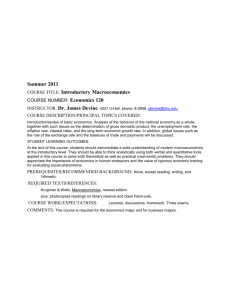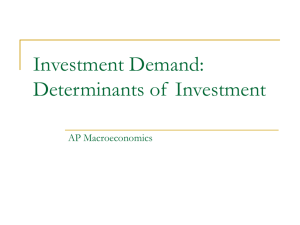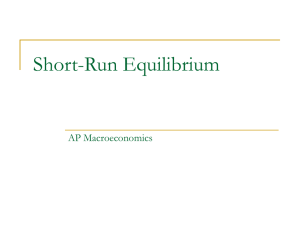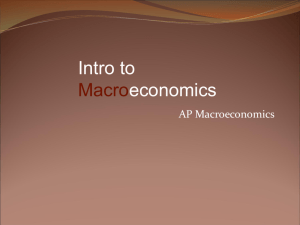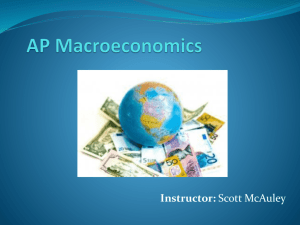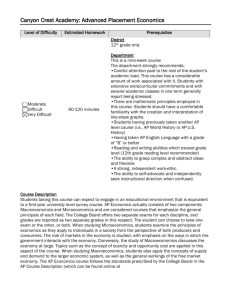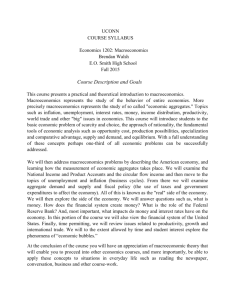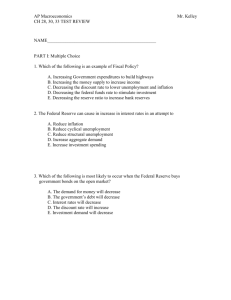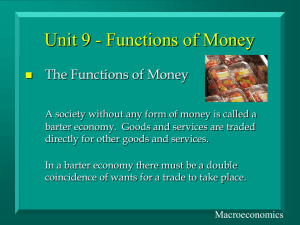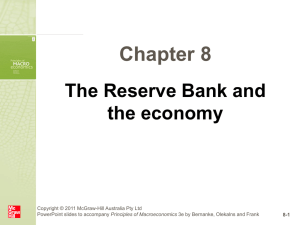The Money Market & Monetary Policy Part I
advertisement
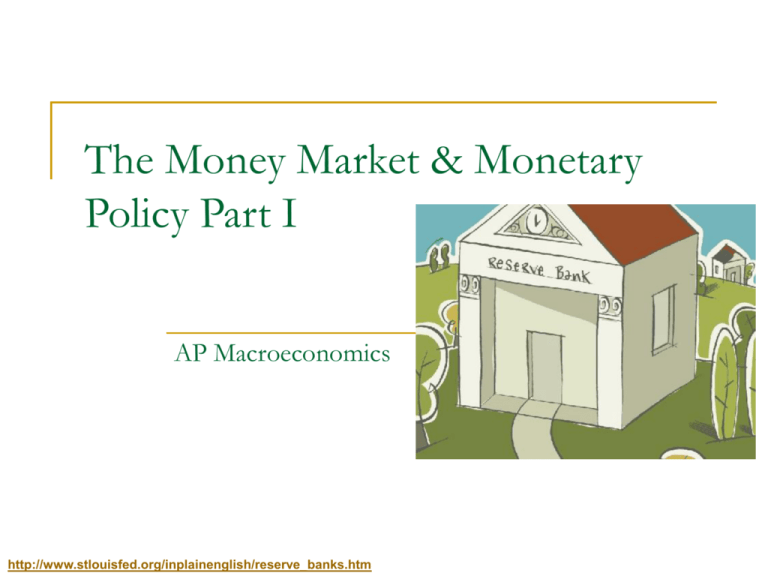
The Money Market & Monetary Policy Part I AP Macroeconomics http://www.stlouisfed.org/inplainenglish/reserve_banks.htm Where we came from… In the previous lesson, we learned about the Federal Reserve System and how its actions relate to the money creation process. http://www.writemoneyinc.com/ Where are we going? In this lesson, we’ll bring together the demand for and supply of money in the money market. The effects of the Federal Reserve System’s monetary policy are integrated into the money market and linked to aggregate demand. http://www.ubtfcu.org/money_market.html What are we doing today? We will practice manipulating the money market and understanding the impact of the Fed’s actions in this market. http://www.economicnoise.com/2010/08/09/close-the-federal-reserve/ People have a choice to make… How much of your wealth do you want to hold as money, and how much of it do you want to hold as interest-bearing assets (stock, bond, etc.)? The trade-off: If you hold onto money, you forego the interest you could earn on the money in an interestbearing asset. This is an opportunity cost! http://myblcublog.blogspot.com/2011/10/tips-on-pocket-money-and-currency.html The demand for money… As the interest rate decreases from r to r1, the amount of money held by people increases from MD to MD1. Visual 4.1 Macroeconomics Unit 4 Factors affecting money demand… Note that the demand for money also depends on price level and on the level of real GDP or real income. For example, if prices double, people will need twice as much money to buy goods and services. Visual 4.2 Macroeconomics Unit 4 Similarly, as income rises, so too does the demand for money. What about supply? We need to add the money supply to the picture. Remember, the Fed determines the money supply through its tools… http://www.slate.com/blogs/breakingviews/2012/03/16/if_money_supply_is_rising_why_isn_t_there_ more_inflation_.html This is the Money Market… Explore (in terms of shifts and equilibrium) changes in interest rate: • What happens to the interest rate as prices rise? •MD increases and the interest rate rises. •As income increases? •MD increases and the interest rate rises. •As the money supply increases? •Interest rate decreases. Visual 4.3 Macroeconomics Unit 4 And now… Some resources: http://www.reffonomics.com/ Morton workbook: Activity 39 Works Cited Economics of Seinfeld. http://yadayadayadaecon.com/ Krugman, Paul, and Robin Wells. Krugman’s Economics for AP. New York: Worth Publishers. Morton, John S. and Rae Jean B. Goodman. Advanced Placement Economics: Teacher Resource Manual. 3rd ed. New York: National Council on Economic Education, 2003. Print. Reffonomics. www.reffonomics.com.
